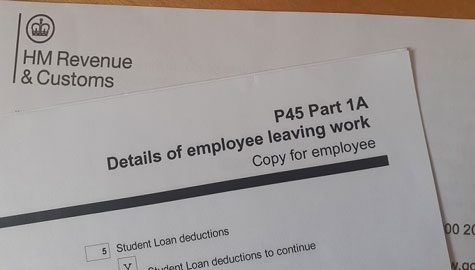Redundancy
It seems very apt that I’m writing this particular blog today. I’ve been writing a series of blogs about the issues that I can help with, and this month it’s about redundancy. As I sit here at my laptop typing, we’re still in lockdown because of the Coronavirus pandemic. Many businesses have had to close including non-essential shops, restaurants, gyms, hairdressers etc. and even though the government have offered to pay 80% of staff wages, there are a lot of people who have been laid off or on the brink of redundancy, and those who are self-employed are unsure if their small businesses will survive. In 2019 Statistica.com says that approximately 106,000 people were made redundant. I fear this number will be significantly higher in 2020.
For some, redundancy is a voluntary and welcome move. They may not be particularly happy in the job and would benefit from the redundancy package to support them as they look for something better, or are close to retirement anyway. However, for many redundancy can come as a nasty shock, or a dreaded fear coming true, and of course this blog is predominantly for those in this last category who are being made redundant against their will.
One of the most natural responses to this is anxiety and low mood, because the security and all the other benefits of having a job are being pulled out from under your feet, leaving a lot of uncertainty and fear to run rampant through your mind – with few, if no, specific answers to any of them yet. 
A job provides much more than just a wage packet, but of course money will be one of your main concerns because you have bills/rent/mortgage/a family to feed just like everyone else, and so one of your first fears can be one of basic survival – will I have enough to get by? What will happen to my home? Have I got enough savings to see me through this? There are some very useful websites which can give you information about your legal rights and ways of managing your finances such as https://www.gov.uk/redundancy-your-rights https://www.acas.org.uk/your-rights-during-redundancy and https://www.moneysavingexpert.com/family/redundancy-help/
Yet there can be a lot more fears than this. Our job tends to provide us with some sense of our identity – after all, one of the most common questions asked of us when we’re meeting someone for the first time is ‘what do you do?’ and our career choice tends to give people an impression of the kind of person we are. Becoming unemployed can therefore damage our self-worth…’what will people think of me?’ However, whilst some of our identity tends to connect with our profession, our job doesn’t define us, who we are as a person is so much greater than this. We are all unique (and therefore infinitely valuable) and can be loved and respected simply for this, our unique character, qualities, traits and skills, regardless of our employment status. Of course, when we are made redundant, it can easily feel like being rejected. It’s understandable to feel this way, however it’s important to rationalise this from ‘I’m no longer needed’ to ‘the job role is no longer needed’.
Other losses that can come with redundancy include having a routine, a sense of purpose and security, friendships in amongst our colleagues. Fears can abound about the likelihood of finding a similar job; will I find something that fits my skills and experience? Or am I likely to end up in a job I won’t like?
Redundancy can easily create a lot of tension in the home as well because of the financial worries, for example the pressure of one person in the relationship suddenly becoming the only breadwinner, a lack of holidays or treats, and also children can pick up on these tensions too and have worries of their own.
The unwelcome changes that redundancy brings tends to take people on an emotional rollercoaster that can include anger, sadness, frustration, disappointment, fear and despondency. It can also touch on old wounds from the past such as rejection, abandonment, loss or self-criticism, making it even harder to cope with. This is why it’s important to reach out at this time and get as much help as you can.
If you have people you can turn to for emotional support then please make use of this, but if you don’t have someone like that, or are finding that you’re really struggling with your mental health and need professional support, then I can offer a confidential and non-judgmental space for you to talk things through and I can also help you explore, understand and heal from any deeper issues that may be surfacing, as well as suggest strategies to help you manage the anxiety and support you in gathering the inner strength needed to move forward. Feel free to get in contact, I’d really like to help.
